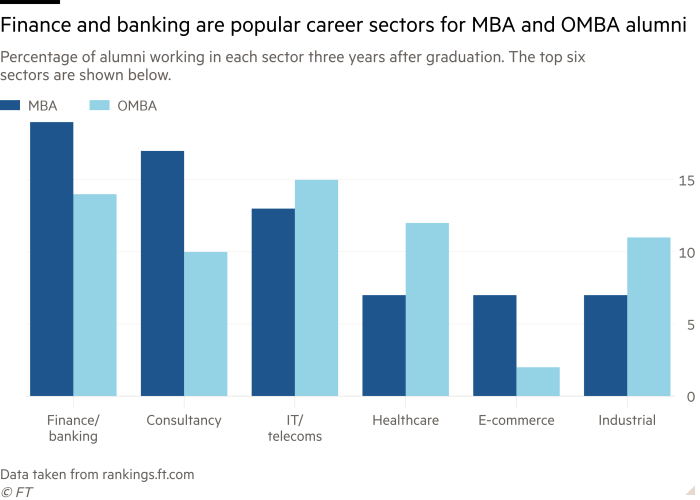Welcome to Business School Briefing. We offer you insights from Andrew Hill and Jonathan Moules, and the pick of top stories being read in business schools. Edited by Wai Kwen Chan and Andrew Jack.
Noticeboard
The next newsletter will be emailed on May 4, Tuesday, due to a national holiday in the UK on May 3.
The Global Boardroom: 4-6 May 2021. Strategies for a world transformed by crisis
Register for free here and hear live-streamed discussions on climate change, M&A, supply chains, tourism, agriculture, labour markets, mental health, trade and geopolitics. Over 120 influential speakers including Antony Blinken, US secretary of state, David Malpass, president of the World Bank, Melinda Gates, co-chair and trustee, Bill & Melinda Gates Foundation, and Sebastián Piñera, president of Chile.
Andrew Hill’s management challenge
Noel Quinn, the chief executive of HSBC, is scrapping the executive floor of the bank’s London headquarters and moving himself and senior staff to an open-plan “hot-desking” area as part of the group’s flexible working programme.
For my management challenge, I’d like to hear more about the advantages and disadvantages of having the CEO sitting amongst his or her staff. I’ve tackled some in my column this week. Send your pros and cons, ideally drawn from your own experience, to bschool@ft.com.
Thanks for your responses to last week’s challenge — to point out any useful lessons business can learn from sport. Steve Thomas (@stevethomasesq) on Twitter was adamant that there were no such lessons: ”Business needs to learn from other places. Like… communities, and the public sector, and feminism, and science.” Christopher Kayes offered these lessons, though: “Research shows that consistent performance pays better than top performance. Stress reduces performance, so learn how to minimize stress. Resilience results from continuing to improve, even when you are making slow progress.”
In further reading, it’s been hard to ignore the impact of Adam Grant’s article for the New York Times, in which he nailed, and named, the low-level sense of ennui that many have experienced this year: “It wasn’t burnout — we still had energy. It wasn’t depression — we didn’t feel hopeless. We just felt somewhat joyless and aimless. It turns out there’s a name for that: languishing.”
Jonathan Moules’ business school news
This week I broke the news that City, University of London, will rename its business school in honour of the 18th century statistician Thomas Bayes, ending a 20-year association with the 17th century slavery business director Sir John Cass. City is also creating a £5m scholarship fund, equivalent to the money it received from Cass’s education foundation in 2001, to pay the fees of UK domiciled black applicants that gain a place on a business degree course.
The Oxford Foundry, the university’s entrepreneurship hub, created with the help of Said Business School, is also attempting to foster greater diversity in business education. It is launching an Entrepreneurial Fellowship Initiative to fund eight-week summer internship placements for 20 students from black, Asian, and minority ethnic (BAME) backgrounds with some of the high-growth start-ups based at Foundry.
Staying with the UK, new research from Quacquarelli Symonds, the higher education think-tank and compilers of the QS World University Rankings, has found that Britain’s successful vaccine rollout is making the country more attractive to international students. In a survey of 105,083 prospective students, 47 per cent said the UK was becoming more attractive as a study destination because of the success of its Covid-19 vaccination strategy, which according to the FT’s vaccine tracker has now seen more than two thirds of the population now receive a first protective dose.
Demand for business masters degrees has been strong during this last year of coronavirus turmoil, but the varying responses to global crisis is shaping where those considering applying to business school choose to apply. A survey of 1,281 prospective students by education research business Carrington Crisp and accreditation body EFMD found 28 per cent per cent had been put off taking a masters degree in certain countries because of the government’s ability to respond to the pandemic.
For further reading this week, I recommend this piece by London Business School’s Lynda Gratton in the Harvard Business Review on how to do hybrid working right: something we will all (hopefully) have to learn over the coming months of Covid-19 lockdown easing.
Data line
Finance/banking, consultancy and IT/telecoms remain the most popular career destinations for MBA and online MBA graduates, who were surveyed for the FT MBA and OMBA rankings, says Leo Cremonezi.
Interest in consultancy has grown in the past five years. Full-time MBA students tend to be in their late 20s and may look for a work experience in these top three sectors. Online MBA students are more likely to be in their mid-30s and more established in their sectors.

Top business school reads
Super League plan collapses as more clubs pull out Inter Milan and Atlético Madrid join English football sides in quitting breakaway competition
Derek Chauvin convicted of murdering George Floyd Biden hails verdict on ex-police officer as potential ‘giant step forward’ in fight against injustice
Vaccines are working: charts that show the Covid endgame Although infections are at a record high, lives are being saved in countries with effective immunisation programmes
How good is your knowledge of the news?
Back issues
To view previous newsletters, go to: ft.com/bschool.
If you are an FT subscriber and this email has been forwarded to you, you can sign up for the FT Business School Briefing.

